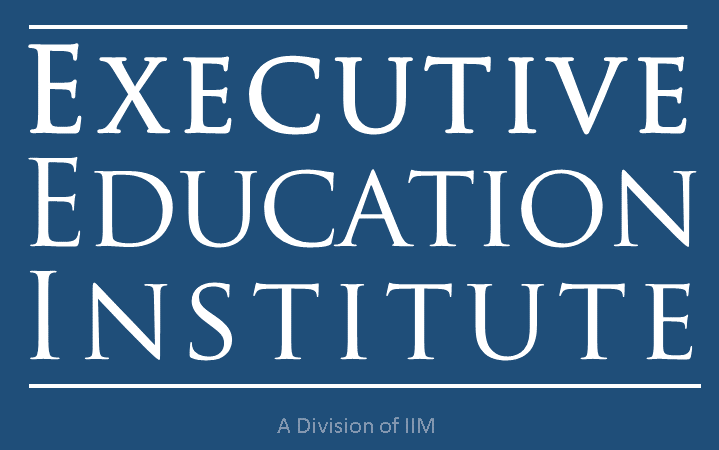Authors' Submission Guidelines
The executive journal invites consultants, entrepreneurs,
executives, professors, researchers, educators, and authors to
submit best practices papers and management articles. The journal welcomes
white papers, case studies, unique insights, best practices advice,
field lessons, and useful conceptual and applied decision-making frameworks.
Paper Format
The preferred article format is the white paper format.
White papers provide businesses and government leaders with a list of
questions, terminology, and discussion points that can be used to address
emerging challenges and opportunities. White Papers are succinct work
documents designed for problem-solving and communication by the leadership
team. Unlike academic research, the white papers are not designed to impress
with intellectual complexity of concepts or formulas, but more with
simplicity and practicality. Also we do not pay attention to the number of
pages or number of referenced sources, or the author's academic credentials. We
care about the real-world value of presented ideas and their implementation
frameworks in business management and public policy. Depending on the scope
of the paper, the document structure may include the following sections:
- A statement of the problem or opportunity
- Analysis of root causes or underlying forces
- Recommendations and best practices for solution implementation
- Notes, references and additional research resources
Sample white papers
Annual Awards
All accepted papers are automatically entered into
Management Best Practices
Paper Contest, one of the most prestigious awards. The competition is
judged by professionals from relevant industries and a panel of experts. One winner will be selected and up to 9
management papers will be selected for an honorable mention.
Dates
- Publishing Dates: Open
- Submission Deadlines: No deadlines
Desired Subjects
Our interests are broadly defined as the changing conditions of economy,
business and/or people in relation to management. Areas for exploration can
include, but are not limited to:
- Strategy & Change : New strategies for changing business environment. External and internal organizational dynamics such as the changing roles and relationships between government, nonprofit, and business sectors.
- Global Economy: International competition and socioeconomic development. Government policies and their impact on national and international business.
- New Economy: Knowledge, Internet, E-business models, virtual companies, tele-working, and security.
- Leadership and Human Resources Development: The changing roles and relationships between management and employees.
- Finance and Accounting: Transparency, governance, accountability and corporate reporting. investment outlooks and corporate investment strategies.
- Business Laws and Ethics: Corporate social responsibility, ethics and laws.
- New Technology Developments: Emerging technology applications and impact on business and markets.
Types and Length of Articles/Papers Submissions
- White Papers (1-15 pages) - Preferred for publications
- Case Study - Success/Failure Lessons (2-4 page)
- Expert Opinion/Articles (1-2 Page)
- Executive Perspective (1-2 pages)
- Executive Briefings (10-20 presentation slides)
- Insights - Anecdotes and Humor (1 page)
Writing Style
- Each paper should provide a clear and concise message/story with analysis of events and their outcome (when applicable)
- All submissions shall summarize findings, recommendations and insights in bullet-point format
- Research papers should present preliminary findings in a way that address hypotheses, debate, supporting and opposing views (when applicable), or tentative recommendations
- The use of illustration diagrams, checklists, bullet points and tables is highly encouraged
Copyrights:
- Authors shall be deemed to have granted to the Institute an irrevocable, non-exclusive license with the right to sub-license others, use and publish the Intellectual Property under open content without payment of fees or royalties.
- Authors shall defend the institute against any claim that work furnished hereunder or any related Intellectual Property infringe any U.S. Patent, trade secret or copyright and will indemnify The Institute and/or against any loss, damage or liability arising from furnished work.
How to avoid copyright infringement?
Copyright infringement can
be embarrassing and costly. Many writers and researchers unconsciously
infringe on other authors' copyrights without even knowing so. Here are some
tips on how to avoid errors:
- Under fair-use rules, make sure that you state that your paper is of a research and educational nature (not for commercial profit)
- Avoid using large segments of someone else's expression
- When you use someone else's solutions or expressions, include a reference to the author or the source.
- Whenever possible, obtain the author's permission before using their expression of ideas.
- Copyrights FAQ
How to Submit
- All submission must be in MS word format, except for the executive briefing which can be in MS power-point format
- A manuscript should be submitted electronically as an attachment to an e-mail cover letter. The e-mail cover letter should include: The names, address, telephone numbers and e-mail addresses of all authors and a copyright statement, "I (we) the author(s) grant the Executive Education Institute royalty free and full rights to use and publish the submitted paper in any and all formats."
- Authors of accepted papers will be expected to sign copyright release forms prior to publication of their article.
- Please send your submission to contact (at) iim.education
:::

